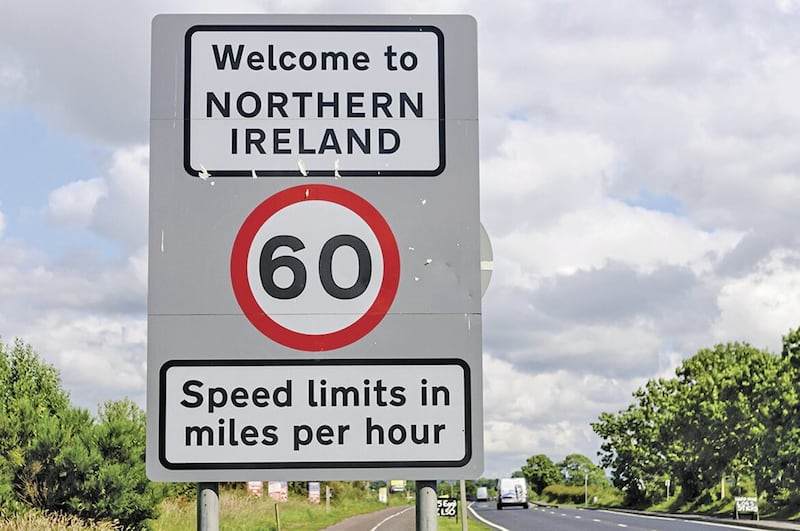The distressing rise in road deaths across Northern Ireland and the Republic is part of a global phenomenon. Three decades of steady improvement tailed off a decade ago and has since gone into reverse.
Mobile phones are commonly blamed but a more complicated picture is emerging as governments pour research funding into the problem. Phones are only part of a crisis of driver distraction from technology inside the vehicle and visual clutter outside.
Drivers getting older
While speeding tends to be an issue with younger drivers, there is some evidence older drivers are more distracted by the proliferation of road signs and markings. Drivers are becoming older on average, along with the general population.
Read more:
- 'Disturbing' rise in road deaths across island of Ireland
- Newton Emerson: What price to put on flood protection?
- Newton Emerson: Competence or culture war? The DUP's dilemma
Speed is usually described as the main cause of accidents but it is more accurate to say distraction is the main cause, with speed the main danger. Other contributing factors to rising accidents are the increasing size and weight of cars and the faster acceleration of electric cars.
Researchers have also identified a rise in aggressive and careless driving due to the pandemic. Its persistence is ascribed to a mix of psychological effects but what it boils down to is people formed bad habits when the roads were relatively empty. They also noticed how unlikely they were to be caught.
There is now a real hope technology will start undoing the damage. From next July, all new cars sold in the UK and Europe must have a speed limiter fitted and activated. This has already been required in all newly-launched models since July last year. The UK is copying EU law because no mid-sized country can regulate car-makers on its own.
Obeying the speed limit
Brussels predicts limiters will cut collisions by 30 per cent and fatalities by 20 per cent. While it could take 20 years for every car on the road to have one, their benefits will be felt far sooner. Once a minority of drivers are obeying the speed limit, traffic forces others to do the same. This will start having its own psychological effects.
Limiters work by a combination of GPS and scanning road signs. They can be confused by visual clutter – reducing signage should be a double-benefit of their introduction. There can also be circumstances where briefly exceeding the speed limit is necessary to avoid an accident. So until the technology improves, regulations require that limiters can be quickly over-ridden, typically by holding down the accelerator. It must also be possible to switch them off, although this might have to be done every time the vehicle is started.

What will force drivers to still take limiters seriously is a second device required by the regulations, called an event data recorder. It stores information about the vehicle for several seconds before and after an accident, including speed.
The EU only requires this information to be used anonymously for safety research. It is up to national governments to decide if police, courts and insurers can obtain it as well. This will be an evolving situation: Brussels thought most member states would prioritise privacy but France has already granted access to the police.
Car insurance industry trying to force change
The strongest pressure for change will come from the insurance industry. British insurers have been demanding data access for years – most cars have had 'black boxes' of some kind since the 1990s. Insurers have also been rolling out their own black boxes to offer lower premiums for better driving.
These devices are able to record more information, including whether a speed limiter has been switched off. Insurers make full use of this data in their own investigations. Police can also request it and courts can order its disclosure.
Looking at how technology, insurance and the law are evolving, it is clear that driving is set to be transformed. Insurers may insist limiters are never switched off, monitoring this in real time and imposing higher premiums.
Policies could be considered invalid in the event of an accident, threatening serious financial consequences for even minor collisions. Courts may treat disabling the limiter as an aggravating factor, increasing sentences for serious accidents.
The one particular piece of good news for Northern Ireland is that it will require no great improvement in government or policing to bring all this about.









